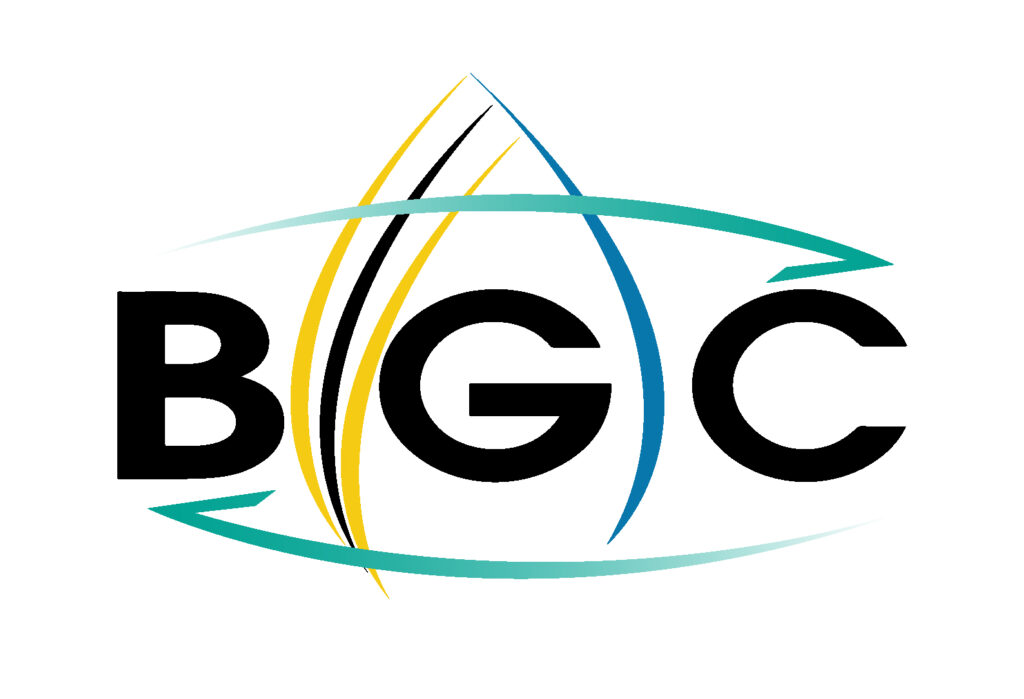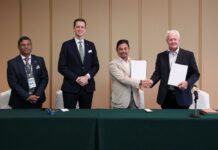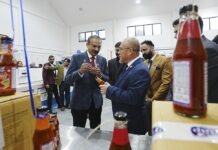
Brunei Gas Carriers (BGC) is a pivotal entity in Brunei Darussalam’s maritime and energy sectors, established in 1998. Tasked with transporting Bruneian Liquefied Natural Gas (LNG) to international markets, BGC has successfully delivered over 7,000 LNG cargoes with a stellar safety record, solidifying its reputation as a dependable player in the global LNG market.
The journey of Bruneian LNG deliveries began in 1972 with a shipment to Japan, and was subsequently led by Brunei Shell Tankers (BST) for three decades. In 2002, BGC made its first delivery, gradually succeeding BST with a more focused and modern approach to managing Brunei’s LNG transportation needs. This transition included the introduction of advanced A-Class vessels and enhanced development opportunities for Bruneian seafarers, aligning with Brunei’s broader economic diversification agenda.
Today, BGC operates four A-Class vessels—Amadi, Amani, Amali, and Arkat—each with capacities ranging from 147,000 m³ to 154,800 m³. These vessels consistently deliver LNG to international clients, particularly in the Asia-Pacific region.
Under the leadership of Captain Abdul Mateen Abdurrahman Liew, BGC continues to expand its horizons. The company is actively seeking opportunities to become an international energy transportation provider – not just for LNG outside Brunei, but also for other energy-related commodities such as ammonia, hydrogen and LPG.
Central to maintaining their leading position and exploring new avenues is Captain Abdul Mateen’s strategy, which recognizes the interconnected relationship between the technical capabilities of their fleet and the development of the skilled professionals who operate these ships. In this interview, he discusses the maritime industry’s future, upholding BGC’s standards, and potential new market opportunities.
Q&A: BGC Managing Director

Q: What is your vision and plan for the future, considering your company’s support for the broader national agenda, particularly in manpower, development, diversification, and the hydrocarbon value chain?
The primary goal was to develop our nation’s resources, focusing on safe, reliable, and sustainable maritime transport. People often associate resources with what is beneath the ground, but investing in our people is equally crucial. We emphasize transforming individuals who lack tertiary education into highly skilled professionals capable of operating vessels.
For BGC, company growth is essential. However, our experience is limited, mainly due to a lack of exposure to businesses beyond Brunei. We need to explore ways to replicate or improve upon this model from a Brunei perspective.
Despite being a small country, we aspire to meet the goals of the Brunei 2035 vision. Our aim is global recognition for our achievements, high education standards, and skilled professionals who can operate vessels and excel in various fields. To achieve this, we rely on highly skilled individuals – officers, engineers, crew, and support staff – to execute our business flawlessly.
Our strength lies in the support of shareholders and directors, who have been instrumental in our success. While continuous improvement is essential, we appreciate our current state and the opportunities given to us.
We are well-positioned geographically in the fast-growing worldwide energy shipping sector, serving traditional customers like China, Japan, Taiwan, and Korea. Despite direct cargo runs from Brunei to Japan, we have also explored shipping to Europe, showcasing our ability to successfully deliver cargo to more exotic locations.
Investing in our people is crucial for cost-effectiveness. Training has played a pivotal role in achieving milestones, and we are grateful for the chances given to us. Without these opportunities, we would not have been able to make significant contributions that benefit everyone involved.
Q: What are your core values and mission, and how do you wish to communicate these to clients and shareholders?
We adhere to core values such as safety, honesty, integrity, and professionalism, collectively forming the acronym SHIP. This framework, developed by our External Affairs (EA) team, remains unchanged. Our commitment is evident in our people and operations – we consistently deliver on our promises.
Business integrity is paramount to us, and we collaborate with those with high ethical standards. We prefer partnerships with individuals and groups who align with our core values. This ensures that our employees understand our commitment to excellence and that we do not compromise on our principles.
In our industry, where reputation is crucial, we know that any misstep can have a significant impact, especially considering Brunei’s small size. We take calculated risks and are selective in business dealings, prioritizing those who uphold business integrity.
Acknowledging the regulated nature of the shipping industry, we invest heavily in training our personnel and recently opened a simulator facility. This investment enhances professional skills and instils the integrity required to conduct business professionally, reducing the likelihood of incidents.
The responsibility to prevent incidents rests on our shoulders. We recognize the potential consequences of failure, not just for our company but for the entire nation. Every employee is seen as an ambassador for Brunei, and our commitment is to flawlessly deliver cargo to maintain the positive image associated with the Brunei flag. We appreciate your trust in our services and encourage continued collaboration.
Q: What are your plans for further international expansion – especially in Europe – considering you have already successfully delivered projects to Korea, Japan, and others?
Currently, we are working on launching a strategy, and there are clear aspects to consider. Our competitive advantage lies in being a full-service operator for tankers, primarily LNG carriers. While we have expertise in LNG carriers due to our 25 years of experience, we do not want to limit ourselves to this sector. We aim to leverage our experience for expansion on a global scale.
The global LNG fleet is growing at an impressive rate of almost 30%, and we intend to seize this opportunity to add value for our potential customers. Acquiring more ships is one approach, but the decision will depend on the specifics of each project’s attractiveness.
We express interest in both operating services and ownership, considering long-term prospects. If there are other areas where our skills can be applied and prove attractive to shareholders, we will explore those possibilities. Our current focus extends to transporting commodities related to the energy industry, such as ammonia, hydrogen, sea liquids, and CO2 transportation. We are actively monitoring developments in this area.
One of our significant challenges, not just locally but globally, is the increasing number of ships being built without a proportional growth in the number of people qualified to operate them. Although we maintain a low attrition rate within BGC, the challenge persists. Fortunately, BGC has retained many seafarers, unlike some other countries, including our colleagues in the UK, who struggle to find cadets.

In the maritime industry, the path to the highest rank poses difficulties. Some cadets pass training, like captains or chief engineers, and even fewer ascend to the highest ranks. Our goal, however, is not to compete at the bottom but to foster loyalty within BGC and Brunei. We aim to provide job opportunities for Brunei maritime seafarers on our vessels.
While automation is a growing trend, trust in the technology is still a question. Human decision-making in split-second scenarios is necessary to prevent collisions or incidents. Brunei’s maritime heritage dates back to its fifth Sultan, Bolkiah, who was a captain, highlighting its maritime history.
Despite historical territorial changes, Brunei remains surrounded by water, and maritime expertise is essential, especially with developments like Pulau Muara Besar and Hengyi requiring such skills. BGC aims to be a maritime talent pipeline for Brunei, contributing to the nation’s need for maritime services, including the supply of spares and food.
In building the maritime system in Brunei, BGC emphasizes the potential of Brunei Bay as one of the safest areas, free from pirates, with sheltered waters suitable for various services. Developing this local maritime system is crucial to meet Brunei’s demand for services currently outsourced to places like Batam or Singapore.
Despite having ships for 50 years, ensuring a qualified workforce remains challenging. While progress has been made, there is room for further maturity in the maritime workforce. BGC aims to contribute to this by providing the necessary skills and personnel.
Q: Where do you see potential for future collaboration and business with the UAE and Middle East?
BGC differs from other Bruneian companies because we are not confined to serving local customers. We aim for the Gulf region to recognize us as a potential service provider in the shipping industry. This collaboration represents one aspect.
Additionally, we currently utilize Islamic finance for our vessels. While business dynamics may change, we find Islamic finance attractive and anticipate its continued relevance.
The last vessel, the Arkat and Amali, secured 100% refinancing from a local bank – a feat that was impossible before due to banks hesitating to take the risk. Winning this financing was a significant achievement to ensure it remained entirely Brunei-owned.
I am open to partnering with Nakilat and managing their vessels. We have proven competence in handling LNG vessels. We are eager to extend our management services to other energy vessels, including newer types like ammonia, hydrogen, or LPG. We are not restricting ourselves, but assessing the risks is crucial. If the risks are manageable, we are willing to explore these opportunities. However, we will carefully consider any potential negative perceptions. Our stance is to be open to all new opportunities without outright rejection.
We offer transportation services for Gulf customers, featuring fully equipped vessels for LNG or any other commodity with minimal preparation. Our ship management services also cater to clients such as Adnoc, Nakilat, or Oman Shipping, serving all Gulf customers.
Beyond that, we are open to exploring opportunities if there’s interest in related commodities transportation. Our manning services entail providing seafarers for companies’ management authority in the Gulf region.
Q: What is your stance on green hydrogen as a potential future product?
Brunei is known as an exporting country. In the past, we produced a small quantity of hydrogen for the Tokyo Olympics as a proof of concept, successfully delivering it. Although the pilot plant has since shut down, Brunei could potentially transition to being an importing country. Even in this scenario, shipping remains essential to bring hydrogen fuel into Brunei.
Q: How are you incorporating innovation into your services, particularly in respect of the digital maritime technology signed with Morocco to optimize LNG operations?
One of the many initiatives we implement on board our vessels is to stay at the forefront of technology, ensuring efficient, reliable, and low-emission cargo transportation. We aim to understand and mitigate emissions, recognizing that this requires collaboration with partners and stakeholders. Brunei Energy, our charters, and the government actively support efforts to lower emissions from our vessels, ensuring compliance with local regulations and international standards like the IMO.
The maritime industry is highly regulated, and we must comply with these regulations within the shortest timeframe possible. Despite the challenges, we have the expertise to make it happen. We are open to adopting newer technologies but prioritize those proven effective and cost-effective. The decision to embrace new technology involves a balance within our team, considering the potential impact on our cost competitiveness. We strive to balance adopting innovation and ensuring affordability, ultimately passing on cost benefits to our customers.
Q: How does ESG (Environmental, Social, and Governance) and CSR (Corporate Social Responsibility) factor into your business strategy?
Our vessel, the Amani, is approaching its 10th year, making it one of our younger ships. Though a decade might seem young, maintaining top-notch conditions remains a continuous challenge. Decisions on investment for the future hinge on choosing between current technologies and newer ones. We are actively exploring ways to reduce carbon emissions as part of our business plan, aligning with global regulations to ensure an environmentally sustainable fleet.
In addition to our onboard initiatives, we prioritize Corporate Social Responsibility (CSR). Our flagship social investment program, Clean River Clean Seas, addresses the debris issue in Kampong Ayer. Recognizing the environmental impact, we organize an annual coastal cleanup campaign involving NGOs, community leaders, youth, and maritime partners. This collaborative effort ensures the cleanliness of waterways, contributing to the positive image of Brunei.
We are actively involved in environmental policies in Brunei Darussalam, supporting initiatives such as tree planting. This commitment to sustainability has been ongoing since our 25th anniversary, and we aim to continue planting more trees, contributing to the long-term well-being of our surroundings. This practice is not just a short-term effort but a commitment to maintaining a balance for the benefit of our community. We believe that taking care of the environment is a collective responsibility, and we are dedicated to playing our part in ensuring the well-being of our country and its neighbours.
Q: Considering your incredible career journey, how have your experiences in various industries shaped your leadership, especially now as the main director of this country’s company?
I am fortunate to have spent the past 20 years working with Brunei Shell Tankers and Shell International Trading & Shipping Company. They provided opportunities to broaden my horizons, and I aim to do the same for others. Some colleagues share this mindset, but many fear leaving their comfort zones. I was initially hesitant, but once I experienced it, I did not want to return home. I encourage others to try, as one cannot know what they might gain without trying.
My diverse experiences in London, Japan, and Korea and my involvement in shipbuilding projects allowed me to work with people from different nationalities and gain varied perspectives. This diversity influences my leadership style. While I may have mood swings, my experiences as a seafarer taught me to adapt to circumstances showing different sides during emergencies. My temper has mellowed, influenced by the various captains I sailed with, each contributing a unique approach.
Regardless of nationality, I focus on how one treats people, as this influences their willingness to support in times of need. I emphasize treating others well fostering a positive work environment. It takes time to reach this point, and while I retain some seafarer attitudes, I have been given many opportunities, including working in Brunei LNG understanding the value chain from upstream to downstream.
I recognize the implications of my decisions on cargo delivery and prioritize ensuring an uninterrupted process. The Boy Scouts’ “Be prepared” motto resonates with me as I anticipate challenges and prepare for potential disruptions. Above all, I prioritize the welfare of people, understanding the importance of their support systems – their families. Brunei Gas Carriers emphasize the importance of the family, recognizing that without their support, the staff cannot effectively contribute to the ship’s success. My role is not only to take care of the ship but also to care for the people who take care of the ship.
This is an edited, extended version of the article published in Gulf News’ Brunei Business Feature on July 29, 2024.

Brunei Business Feature published in Gulf News, an initiative by BEDB





![[Video] Behind the launch: Atoll expands FDI in Brunei with Mantap sauces](https://www.bizbrunei.com/wp-content/uploads/2025/06/Atoll-Agro-Mantap-FA-9-218x150.jpg)





![[Video] From backyard fish farm to Proudly Brunei Business Award winner; Fatih eyes one-tonne monthly output](https://www.bizbrunei.com/wp-content/uploads/2025/05/Youtube-Thumbnail-PBBA25-FATIH-AQUACULTURE-100x70.png)
